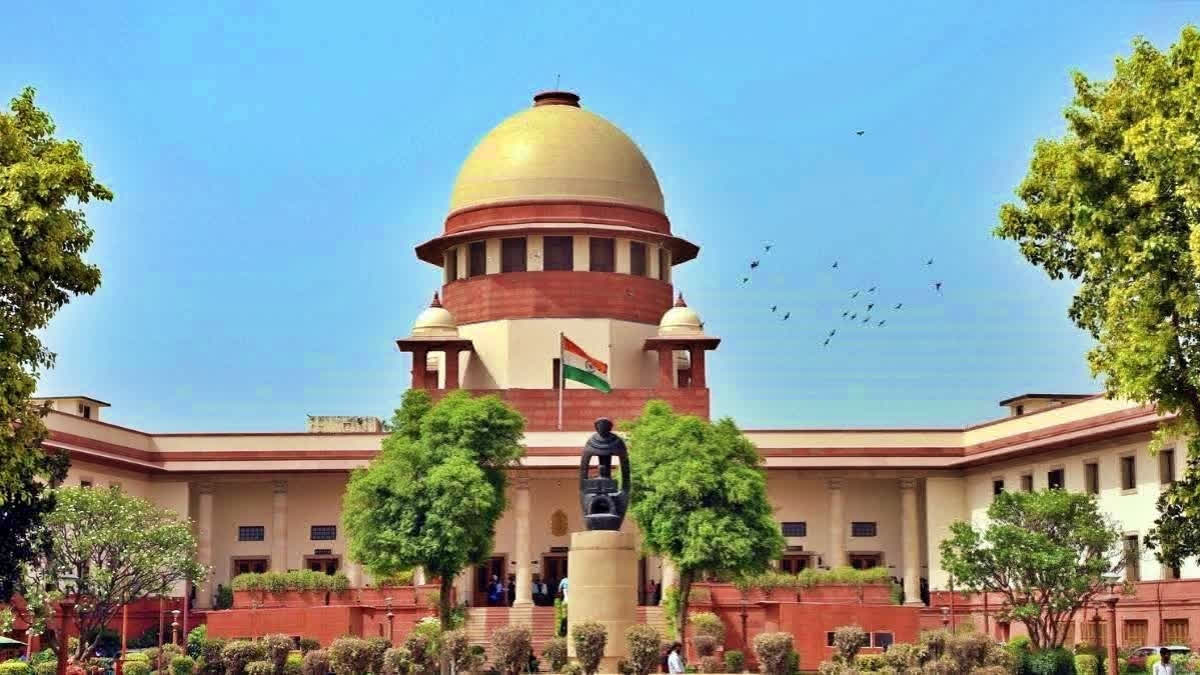New Delhi: The Supreme Court has said that it would be inappropriate to direct that the existing regulations of 2013, to protect an 'aggrieved woman' in the Supreme Court of India, be made gender neutral to include LGBTQIA+ members by a judicial order.
A bench comprising Justices B V Nagarathna and Ujjal Bhuyan said the court finds that the definition of "aggrieved woman" as it exists would not cover a person, who is belonging to the LGBTQIA+ umbrella.
It said if such a person suffers sexual harassment, according to the petitioner, there are no regulations as such where a remedy could be sought, and it is in the above context that amendments to the 2013 regulations have been sought.
“We are of the view that it would be inappropriate to direct the.... amendments to be made to the 2013 regulations as otherwise the whole purpose and object of the said regulations would be diluted and denuded of its effect”, said the bench.
The apex court said it feels that the focus will be lost from the principal objective i.e., prevention of sexual harassment of women at the Supreme Court of India, if such amendments to the regulations which were framed following enactment of the Sexual Harassment of Women at Workplace (Prevention, Prohibition and Redressal) Act, 2013 are made.
The bench noted that the object and purpose of the regulations of 2013 Act are in order to protect an ‘aggrieved women’ in the workplace i.e. the Supreme Court of India. The apex court said regulations were formulated in view of clause 3 of Article 15 of the Constitution and in order to extend the constitutional right of equality and equal protection of the laws as enshrined in Article 14.
"If a person other than an 'aggrieved woman' is subjected to sexual harassment and there is no body of regulations to extend protection to such a person and a question arises regarding the manner in which such a protection could be extended, in our view, the answer does not lie by amending the existing regulations," it said, in an order passed on November 7.
Senior advocate Vibha Datta Makhija, who appeared in person, said the regulations should provide gender neutral protection. It was argued that in view of the subsequent development of law and recognition of the constitutional rights of other persons such as LGBTQIA+ persons, these regulations are wholly inadequate to cover such persons and their grievances, including harassment in the workplace, that is, the Supreme Court of India which cannot be remedied under the existing body of regulations. She also cited the 2014 judgment in the NALSA case to buttress her plea.
The apex court said: "In Union of India vs. K. Pushpavanam, 2023 wherein it was observed that a writ court would not direct the Government to consider introducing a particular bill before the House of Legislature within a time frame. Therefore, a Constitutional Court would not issue a writ of mandamus to a legislature or to a rule making body to enact a law on a particular subject and in a particular manner.
The bench noted Makhija submitted that she would withdraw this application and she would make a representation to the gender sensitization committee of the Supreme Court for formulation of another body of regulations to cover persons belonging to the LGBTQIA+ communities for their protection from sexual harassment in the workplace, Supreme Court of India.
Also read: 2008 Jaipur blasts case: SC refuses to relax daily appearance of accused
Also read: Pick and choose style in appointment of judges troublesome practice: SC to Centre



